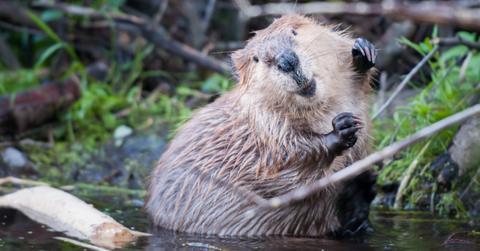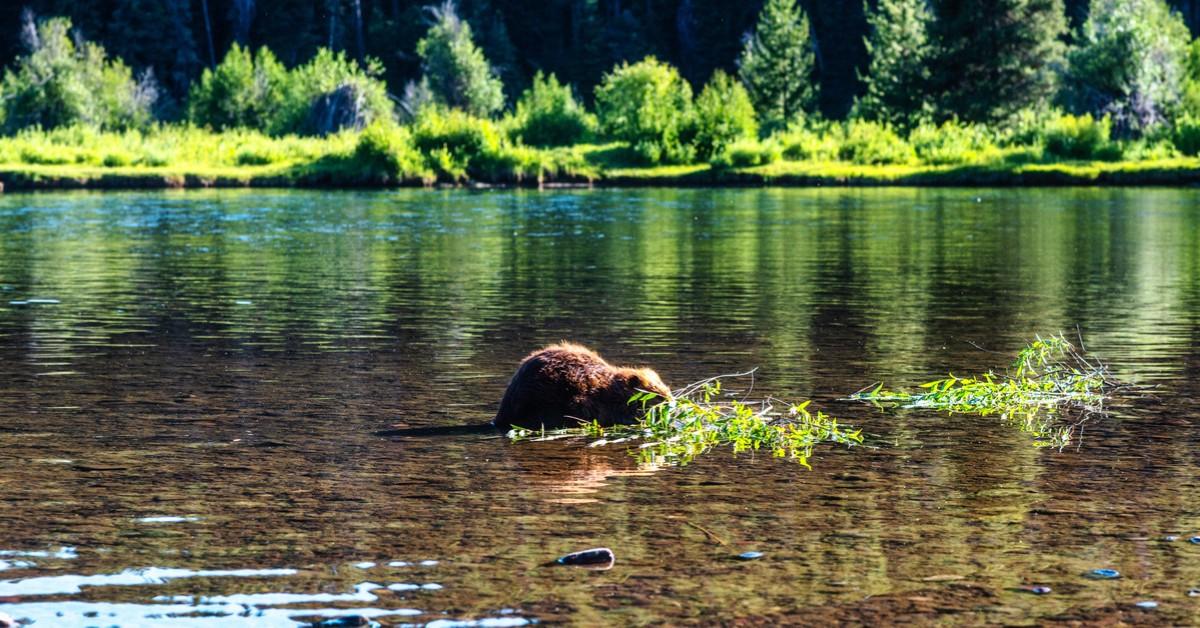"Beaver Bombing" Explained: Why Conservationists Are Taking Desperate Measures
While the name sounds fun some worry that the method could have negative consequences.
Published Aug. 28 2024, 1:55 p.m. ET

Beavers have been extinct in the wilds of England for some 400 years after hunters decimated populations while killing them for their skin and other attributes. In recent years, conservationists have started working to change that by breeding beavers in small areas and slowly reintroducing them to waterfront communities and areas with rivers and streams.
Many conservationists have found themselves ready to reintroduce beavers back into the wild before the local government has approved the wildlife releases, prompting some to take matters into their own hands via a tactic many call "beaver bombing."
While the cute-sounding method does seem to have its perks, some are worried about the long-term consequences of those governmental delays. Keep reading to learn more.

What is beaver bombing?
According to The Guardian, "beaver bombing" involves secretly sending beavers off into the wild without receiving permits for a planned release. These tactics are being carried out by conservationists who have worked to breed and raise beavers to get them ready for release under the assumption that they would have full governmental support when the time came.
Instead, these groups are saying the government is neither approving nor denying their requests — leaving them with no choice but to drop the beavers off in secret.
This has left beaver advocates scratching their heads since the rewilding of England's beavers has the potential to be beneficial for both the beavers and the humans that call these areas home.
"Beavers are a native species with lots to offer in terms of landscape resilience, boosting biodiversity and climate change adaptation and mitigation," the Beaver Trust's Eva Bishop tells The Guardian. "It would be crazy not to look at wild release as a key tool for the government."
The government's failure to act may have long-lasting on the country's beaver populations, as well. Bishop fears forced unauthorized releases could cause public support for the project to waiver.
Despite the lack of action, the beaver populations are thriving, with an estimated 200 of them living in lowland Kent... despite the fact that no release authorizations have ever been approved for the area.
Why are conservationists working so hard to bring the beavers back?
You'd think an animal known for cutting down trees and blocking waterways would be persona non grata in populated areas. Experts say that it's these very habits that make beavers so important to the local ecosystem.
Some benefits of beavers include creating biodiversity in wetlands, restoring water quality, and even helping solve issues with flooding and droughts in nearby towns, farms, and fields.
Since beavers are native to the area, their presence has likely been missed by the other flora and fauna that call the region home.
While their return does stand to benefit so many, experts warn that if not handled correctly, beaver bombing could prove disastrous for those growing populations, potentially taking them back to the brink of extinction once more.